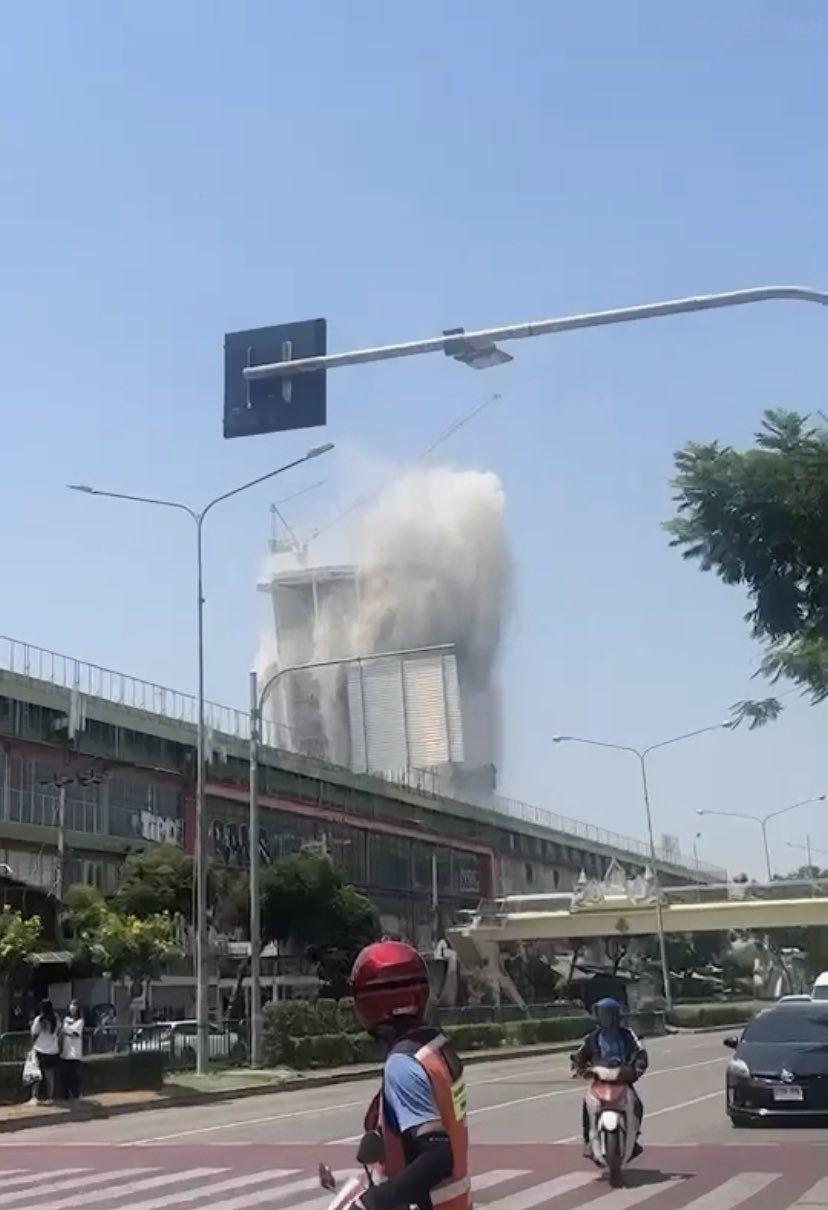The following is a widely shared reader submission and not original content from TPN Media but as we thought it was good advice have shared it to our readers, but note the opinions expressed are their own.
To all Thai residents,
EARTHQUAKE SAFETY UPDATE: Why Bangkok Shakes More – And What Expats & Tourists Need to Know
Following the recent earthquake from Myanmar felt across parts of Thailand, including Bangkok, many residents and visitors are concerned about aftershocks, building safety, and where to go if they feel unsafe. Here's what you need to know—and why Bangkok experiences stronger tremors compared to other parts of the country.
—
Why Did Bangkok Shake So Much?
Even when an earthquake happens far away—in northern Thailand, Laos, or Myanmar—Bangkok often feels the tremors more than closer cities like Chiang Mai. The reason? Soft soil.
Bangkok sits on a thick layer of soft clay, part of what geologists call the Bangkok Basin. This type of soil acts like jelly: when seismic waves pass through it, the ground amplifies the shaking instead of absorbing it. As a result, even distant earthquakes can cause buildings in Bangkok to sway, especially high-rise condos and offices.
—
Why Other Cities Feel Less Shaking
Chiang Mai may be closer to fault lines, but it's built on rocky, stable ground. The soil there doesn't amplify tremors like Bangkok's does.
Pattaya and Hua Hin also sit on firmer terrain, making them far less sensitive to regional seismic activity.
—
Should You Leave Bangkok If You Feel Unsafe?
If you are staying in an older building, on a high floor, or simply feel anxious after the recent tremor, it is okay to temporarily relocate. Many expats and tourists have already chosen to head to:
Pattaya – about 2 hours from Bangkok
Hua Hin – about 3 hours from Bangkok
Both cities are built on firmer ground, are not known for major seismic activity, and offer plenty of accommodation, beach access, and tourist services.
—
What to Look for in Your Building
If you're staying in Bangkok:
Inspect your room or unit for cracks in walls or ceilings
Check that doors and windows open and close normally
Look for visible tilting or damage in the hallway or structure
If something seems off, notify your building manager or landlord immediately.
—
Will the Thai Government Inspect Damaged Buildings?
Yes. You can report suspected building damage to the Bangkok Metropolitan Administration (BMA). They may send engineers or officials to inspect the property.
Hotlines to Contact:
BMA Hotline: 1555
Tourist Police: 1155
Emergency Services: 191
Medical Help: 1669
If you're a renter, your building owner or management should file a report on your behalf.
—
What to Do If You Feel Another Earthquake
Inside a building? Drop, cover, and hold on. Stay away from windows and don't use the elevator.
Outside? Move to an open area, away from buildings and signs.
Driving? Stop the car in a clear spot and stay inside until the shaking ends.
After any quake, watch for aftershocks and check your surroundings before re-entering a building.
—
Travel Smart – Stay Calm – Stay Informed
Whether you're a long-term resident or just visiting Thailand, knowing what to do—and where to go—makes all the difference. Bangkok may not be in a high-risk earthquake zone, but due to its soil, it feels tremors more than other places.
If you're not comfortable staying in the capital right now, there's no harm in heading to safer, more stable destinations like Pattaya or Hua Hin. Both have solid infrastructure, beach access, and lower seismic sensitivity.🙏





Inga kommentarer:
Skicka en kommentar